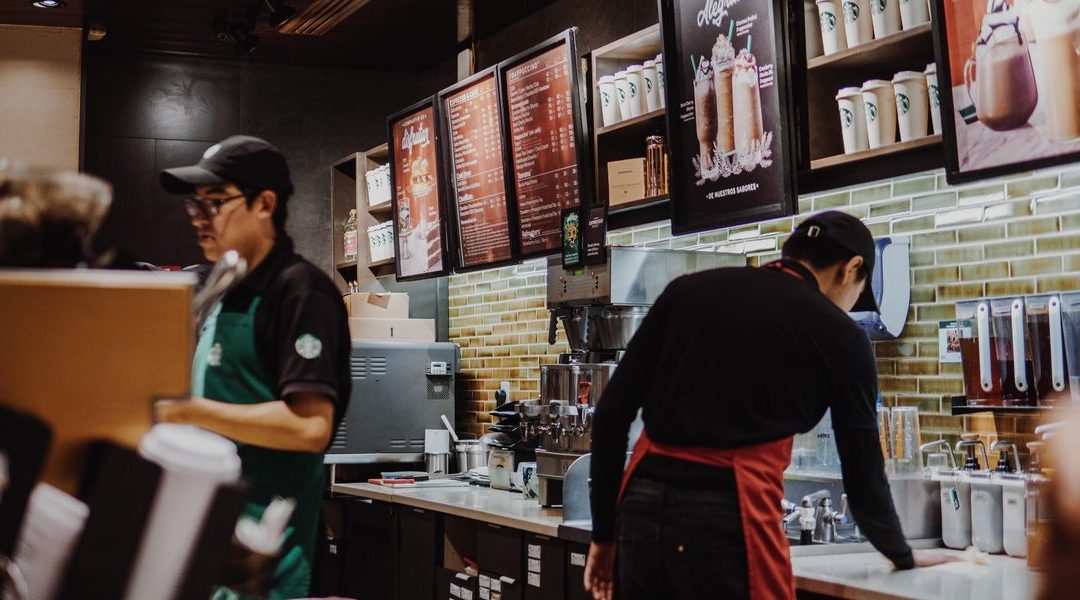
Capping off what organizers and other labor rights advocates have dubbed “the year of the worker,” employees at two more Starbucks stores are seeking to unionize.
Workers at a pair of Starbucks locations in Broomfield, Colorado and Chicago, Illinois filed union petitions with the National Labor Relations Board (NLRB), a Twitter account associated with organizing efforts at the coffee giant announced Thursday.
The filings follow the first-ever successful union vote for at least one Starbucks in Buffalo, New York earlier this month and ongoing efforts at locations across the country, which workers—known as “partners”—in Broomfield and Chicago noted in letters to president and CEO Kevin Johnson.
“As our fellow partners in Buffalo, Boston, Knoxville, Seattle, Mesa, and more have demonstrated, we believe there is no true partnership without the sharing of power, influence, accountability, and success,” the Colorado workers wrote.
“We are forming a union to facilitate this belief, and to establish our voices and affect the change we need as true partners to this company,” they added, detailing the benefits of an organized workforce for not only employees but also the company, and calling out Johnson and others in Starbucks leadership for their anti-union campaign.
“We are not frightened, we are not intimidated, but we are emboldened, we are disappointed, and we are outraged,” the workers explained. “Our unionization is a means to ensure Starbucks can be the best place it can be for all partners, where genuine partnership is fostered, and sustainable, fulfilling careers can thrive.”
The Chicago workers similarly wrote that “in solidarity with partners in Buffalo, Boston, Knoxville, and all those organizing nationwide, we believe there can be no true partnership without power-sharing and equal accountability.”
“Our goal in unionizing is to achieve true partnership, not just the title of ‘partner.’ We see unionizing as a commitment to making our store a staple in the community, and making Starbucks the great company we know it’s capable of being,” they continued.
Both groups of employees urged Johnson to sign a document attached to their letters detailing “fair election principles,” which include recognizing that “the right to organize a union is a fundamental civil right essential to our democracy.”
Other principles aim to protect workers who are organizing, including: “If partners choose to unionize, there will be no negative repercussions from management” and “Starbucks agrees not to make any implicit threats (lawful but unethical) or explicit threats (unlawful).”
So excited that @SBWorkersUnited have expanded to CO! We stand strong with these brave workers & support them in their fight for the benefits and safe working conditions they deserve. #UnionStronghttps://twitter.com/SBWorkersUnited/status/1476652677304041481\u00a0\u2026— PWG Colorado (@PWG Colorado)
1640898172
The announcement about Broomfield and Chicago was celebrated by allies within and beyond those communities, from Colorado Independent Drivers United and Colorado Jobs With Justice to the Chicago Teachers Union.
The west suburban Illinois chapter of Democratic Socialists of America (DSA) tweeted, “If anyone in the Chicago suburbs wants to start a union, let us know.”
While the NLRB earlier this month certified the results of the 19-8 vote in Buffalo, Workers United, the union representing Starbucks employees, filed formal objections regarding elections at two other nearby locations, citing company leadership’s anti-union efforts.
According to the Associated Press:
Workers at a store in the Buffalo suburb of Hamburg voted 12-8 against a union. The outcome of a Cheektowaga store’s vote could not be determined because both sides challenged seven separate votes. Union organizers said six of the votes were cast by ineligible employees.
If the outcome of the ballot challenges favors unionization, organizers will drop the objection to the Cheektowaga results, attorney Ian Hayes said.
The objections say Starbucks employees “were subjected to a massive campaign of overwhelming psychological force from the moment they publicly expressed the desire to form a union.”
“Under the law, voters are supposed to experience ‘laboratory conditions’ in the time between asking for an election and casting their vote, so they can make a rational decision based on their interests,” Hayes said in a statement. “Starbucks spent millions and did everything it could to comprehensively deprive partners of such conditions. The company robbed Starbucks partners of a fair vote.”
This content was originally published here.

